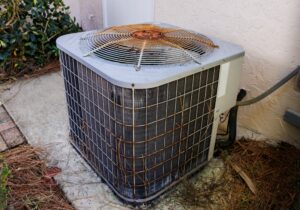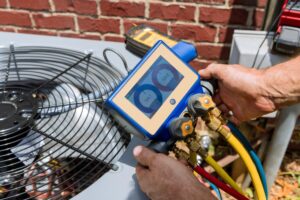When homeowners receive high energy bills, it quickly becomes a priority to find ways to reduce energy consumption. In their quest to reduce, they often discover that their HVAC system consumes a significant portion of the energy used throughout the day. Fortunately, all hope is not lost. By making a few strategic upgrades to your HVAC system, you can enhance its energy efficiency and reduce those nauseatingly high energy bills. Let’s take a closer look at the best energy-efficient HVAC upgrades to make this year.
Upgrade to a High-Efficiency HVAC System
One of the most impactful ways to reduce your energy bills is to upgrade your HVAC system to a high-efficiency model. Modern high-efficiency HVAC units are designed to use less energy while maintaining a comfortable indoor environment. When shopping for a new system, look for models with a high Seasonal Energy Efficiency Ratio (SEER2) rating, which indicates better energy performance. Additionally, Energy Star certified systems are a great option as they meet strict energy efficiency guidelines set by the Environmental Protection Agency.
Install Programmable Thermostats
Installing a programmable thermostat is a simple yet effective upgrade that can significantly reduce energy consumption. These devices allow you to set your HVAC system to run less when you’re not home or during the night. Some types of thermostats even allow you to control your home’s temperature via a smartphone app. By programming your thermostat to adjust the temperature based on your schedule, you can avoid unnecessary energy waste and maintain a comfortable environment without constant manual adjustments.
Ensure Proper Insulation
Proper insulation is crucial for an energy-efficient home. Poor insulation can lead to significant energy waste as your HVAC system works harder to maintain the desired temperature. Make sure your home is well-insulated, especially in the attic, walls, and around windows and doors. This will help keep the cool air in during summer and the warm air in during winter while also reducing the strain on your HVAC system and lowering your energy bills.
Seal Ductwork
Your HVAC system relies on ductwork to distribute conditioned air throughout your home. If your ductwork has leaks or is improperly sealed, you could be losing a significant amount of energy. Sealing the ducts ensures air flows efficiently throughout the house. If you’re interested in making energy-efficient HVAC upgrades this year, give some serious thought to resealing your ductwork.
Upgrade to a Variable-Speed System
Variable-speed HVAC systems offer superior energy efficiency compared to traditional single-speed systems. These systems can adjust their speed to match the heating or cooling demand. By operating at lower speeds for longer periods, variable-speed systems maintain a more consistent indoor temperature and use less energy overall. This upgrade can lead to significant energy savings over time.
Utilize Zoning Systems
Zoning systems allow you to divide your home into different areas, each with its own thermostat. This means you can heat or cool only the areas you’re using rather than the entire house. By focusing energy usage where it’s needed most, zoning systems can significantly reduce energy waste and lower your utility bills.
Get the Best HVAC Upgrades From H.J. Faust
By implementing these energy-efficient HVAC upgrades, you can enjoy a more comfortable living space while significantly reducing your monthly utility costs. If you’re ready to save money, turn to H.J. Faust, Inc. — we specialize in improving home energy efficiency with quality HVAC services in Lake Geneva, WI, and the surrounding areas. Our team of experts is ready to assist you with everything from system upgrades to routine maintenance. Contact us today to learn more about how we can help you achieve a more efficient home.



